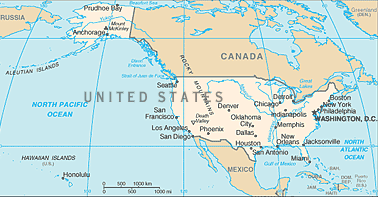Throughout the United States, Muslim women who have refused to remove their headscarves at school, for uniformed work or training, in jails and prisons, and for identification photos have provoked numerous legal spats, most of them short-lived. Some, such as disputes over driver license photos in Alabama and ID cards both at Indiana University and in Florida, have been resolved in a way that permits the wearing of headscarves — provided that women adjust the covering to provide a “full face” photo. Other cases — such as a Cleveland area jail, a Navy training program in New Jersey, and an American Airlines employee hiring policy — have led to institutions changing their rules to better accommodate headscarf wearers. In some high-profile legal cases, Muslim headscarf activists and the Bush administration have been on the same side in opposing limits to Muslim dress. The Department of Justice recently stepped in to support a sixth-grade Muslim girl who had been suspended from a Muskogee, Oklahoma science academy twice for refusing to remove a headscarf. The case was eventually settled, with the school modifying its dress code to allow the student to attend school wearing the hijab. Earlier this year, a teacher at a Louisiana high school was fired for allegedly pulling on the headscarf of a Muslim student and making offensive remarks about her religion. Meanwhile, Muslim rules of modest dress may be making inroads in global consumer culture in the guise of a Barbie-like doll manufactured by a Detroit-based educational products company. The doll named Razanne — referring to modesty and beauty in Arabic — comes in different skin colors, wearing flowing clothes and the traditional hijab.
- Previous: United Kingdom



